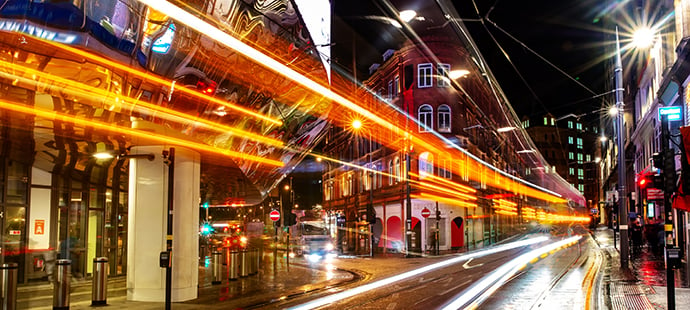Birmingham’s energy and culture will take it forward - past ‘bounce back’ and post-pandemic recovery

The can-do spirit and community of makers, doers and innovators can get the city through even the most challenging of times.
If history and the past year has taught us anything about Birmingham, it is that its can-do spirit and community of makers, doers and innovators can get through even the most challenging of times - using them as an opportunity for reinvention and, like the city’s motto, to move ‘forward’.
It’s no secret that the city was hit hard by the pandemic, owing to its high proportion of sectors most heavily affected including manufacturing, retail, leisure and its very strong tourism industry. This played out both in the short-term, with the immediate contraction of business activity in these industries, and the long-term, where the full impact of three consecutive lockdowns is still rippling out to communities and livelihoods.
Yet Birmingham’s public, private, education and third sectors have a reputation for working together to not only secure, but maximise the city’s past, present and future wins. This is evidenced by Birmingham establishing itself as a major European city competing in the competitive international inward investment major leagues following the 2008 recession, as well as attracting flagship global events like the Commonwealth Games and transformative infrastructure investment such as HS2. It is this energy, culture and collaboration that is already helping, and will help, Birmingham come back stronger.
The proof is already in the data. Since Avison Young launched our UK Cities Recovery Index - a live tracker of the post-pandemic recovery of the UK’s core cities - Birmingham has not only been resilient but responded well when restrictions have eased. The Index emphasises the level of business confidence with the Commercial Activity Index now at 128.7 – having recovered from a low of 81.9 at the end of January 2021, and the city’s retail, leisure and hotel sector indices are seeing huge surges in activity as we get further down the Government’s roadmap - the Hotel & Leisure Sector Index currently stands at a post-Covid high of 114.2 compared to a lockdown low of 10.6 in May 2020.
Our unrivalled visitor economy is coming back to life and real estate activity is showing signs that this will continue. A prime example is the NEC Group’s Utilita Arena Birmingham. Working with Avison Young, the iconic Birmingham venue, which attracts over half a million visitors per year and generates £2 billion in economic benefit to the region, has just fully let all of its adjoining retail units to new and existing bars, music venues and entertainment, with most of these deals happening in lockdown. Also, the latest NatWest PMI report, which measures the combined output of the region’s manufacturing and service sectors, shows that bounce-back is very much happening - improving from 51.1 in February 2021 to 65.9 in May 2021.
Beyond hard numbers, decades of solid work and public-private sector partnerships have carried confidence in Birmingham. Most recently Goldman Sachs announced a rare foray outside London for a new regional office, bringing hundreds of jobs and another ‘attractor brand’ to Birmingham. At the same time and in-line with Whitehall’s Levelling Up agenda, a raft of Government relocations and Regional Hubs are already here or on the way. We’ve seen in the past the benefits of major private sector moves to the city, with the likes of HSBC and Deutsche Bank underlining Birmingham’s role as the largest regional financial centre.
Thanks to record investment, Birmingham is unrecognisable compared to twenty, ten, even five, years ago. Developments underway including Paradise, Arena Central and 103 Colmore Row will add to the previous successes of Ballymore’s Snow Hill and the now iconic Brindleyplace, while outside of the city core, Birmingham Health Innovation Campus, led by a partnership of the University of Birmingham and Bruntwood SciTech, demonstrates the city’s confidence in growing this sector of its economy. Co-located with the Queen Elizabeth Hospital, Biohub Birmingham, the Institute of Translational Medicine, Birmingham Women’s and Children’s NHS Foundation Trust and the University of Birmingham, it is uniquely positioned to build on the city’s health and life sciences offer, delivering a new focal point for connected healthcare technologies and driving further investment and growth.
The Knowledge Quarter, now located in a key area that will be enhanced by its proximity to HS2, is already home to world-leading academic, clinical and cultural institutions including Birmingham Children’s Hospital, Aston University, Birmingham City University and the National College for Advanced Transport and Infrastructure, as well as BCU’s innovative STEAMhouse development.
Work has now begun on Birmingham’s first smart-enabled building, Enterprise Wharf, at Innovation Birmingham where Avison Young are joint agents alongside CBRE and Savills.
Longer term, and looking ever forward, the new ‘Our Future City Plan’ and 2040 vision laid out by Birmingham City Council will introduce a greener, fairer, more sustainable and interconnected city over the next twenty years - harnessing opportunities and ensuring inclusive growth is felt not only in the Central Business District, but wider areas. This plan also recognises Birmingham’s place and unique story in the wider West Midlands alongside the cities of Coventry and Wolverhampton.
Culture and personality is at the heart of everything that people look for and consider when they are making decisions around where they live, work, invest and draw their workforce from. We’re lucky that in Birmingham, we’ve got this spot on.
Carl Potter is Principal and Managing Director for Birmingham at Avison Young.
This article first appeared in Estates Gazette on 14th June 2021.

